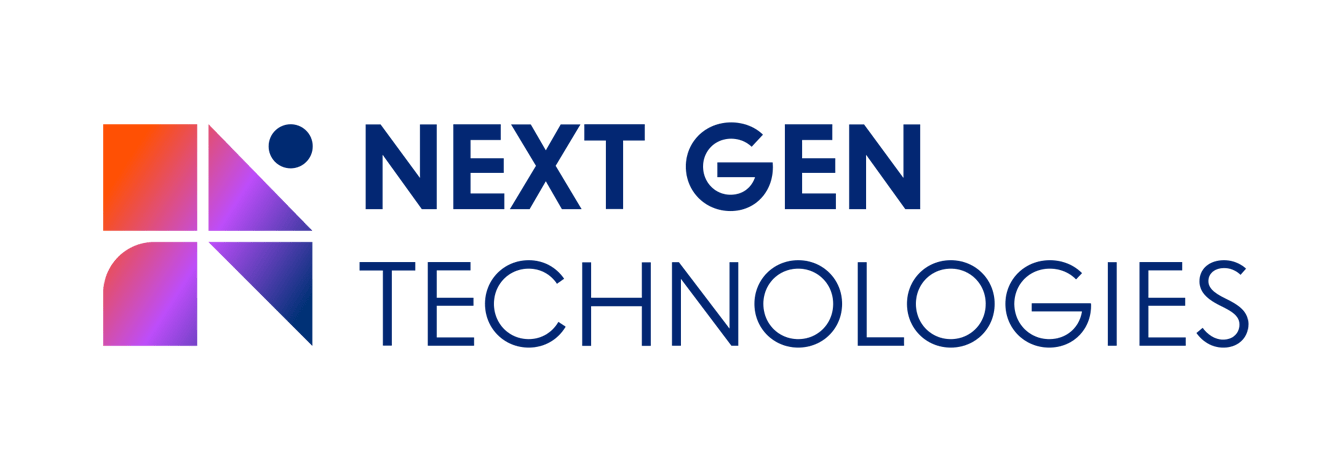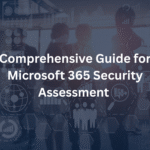Safeguard your business with Microsoft Defender for Endpoint – a comprehensive endpoint security solution implemented by experts at NextGen Technologies. Whether your business operates in Dubai, the wider UAE or across international markets, our cybersecurity professionals deliver top-tier protection to help you stay secure, compliant, and resilient.
Protect Your Business with Cutting-Edge Security
In today’s digital world, endpoints are a primary target for cyber threats. From phishing emails to ransomware attacks, endpoints like desktops, laptops, and mobile devices are vulnerable entry points. Microsoft Defender for Endpoint is an enterprise-grade security platform that delivers advanced threat prevention, detection, investigation, and response capabilities.
At NextGen Technologies, we help organizations implement Microsoft Defender for Endpoint to:
- Prevent cyberattacks using real-time threat intelligence and behaviour-based detection.
- Mitigate vulnerabilities with automated patching and threat analytics.
- Respond quickly with built-in endpoint detection and response (EDR) and threat hunting.
Why Choose This Service?
Choosing Microsoft Defender for Endpoint implementation with NextGen Technologies means choosing peace of mind, knowing your IT infrastructure is monitored and secured 24/7. Here’s why businesses trust us:
- Certified Microsoft Security Experts
- Customized Deployment Plans
- Scalable Solutions for SMBs and Enterprises
- Cross-industry Experience in UAE and Internationally
- Compliance-Focused Implementation (ISO, HIPAA, GDPR)
Whether you’re a healthcare provider, financial institution, retail chain, or logistics company, our Defender for Endpoint services are tailored to your needs.
How to Implement Microsoft Defender for Endpoint Security
Step 1: Prepare Your Environment
Pre-requisites:
- Microsoft 365 E5, Microsoft Defender for Endpoint Plan 2, or equivalent licensing
- Devices running supported OS versions (Windows 10/11, macOS, Linux, iOS, Android)
- Access to Microsoft 365 Defender portal: https://security.microsoft.com
Ensure devices are:
- Properly enrolled in Azure AD or hybrid Azure AD
- Managed via Intune, Configuration Manager, or third-party MDM
Step 2: Onboard Devices
You can onboard devices through several methods:
- Microsoft Intune (preferred for cloud-managed environments)
- Group Policy or PowerShell for domain-joined systems
- Microsoft Endpoint Configuration Manager (MECM/SCCM)
- Local script deployment for smaller environments or testing
Step 3: Configure Device Compliance and ASR Rules
Attack Surface Reduction (ASR) helps block common malware vectors by configuring rules such as:
- Block executable content from email/web downloads
- Use controlled folder access
- Prevent process creation from Office macros
These can be deployed via Intune or GPOs and monitored through Microsoft 365 Defender.
Step 4: Enable Endpoint Detection and Response (EDR)
Once devices are onboarded, EDR begins real-time monitoring for suspicious behavior such as:
- Lateral movement
- Credential dumping
- Unusual login activity
Security teams can investigate alerts, contain devices, or initiate automated actions directly from the portal.
Step 5: Turn On Threat & Vulnerability Management (TVM)
TVM continuously scans devices for vulnerabilities, misconfigurations, and outdated software. Use it to:
- Prioritize vulnerabilities based on threat landscape
- Remediate using Intune, Configuration Manager, or manual actions
- Track exposure scores across departments
Step 6: Set Up Automated Investigation and Response (AIR)
With AIR, Microsoft Defender:
- Analyzes alerts automatically
- Correlates related incidents
- Applies recommended remediation actions (quarantine, isolate, stop process)
This significantly reduces response time and SOC burden.
Step 7: Configure Notifications and Roles
To ensure incident response and alert routing:
- Set up email notifications for critical alerts
- Define role-based access control (RBAC) to limit portal permissions
- Create custom detection rules as needed
Step 8: Utilize Advanced Threat Hunting
Use Advanced Hunting with Kusto Query Language (KQL) to:
- Analyze 30 days of raw telemetry
- Identify anomalies before alerts are triggered
- Create custom detection alerts for your environment
Step 9: Integrate with Microsoft Defender Ecosystem
Microsoft Defender for Endpoint integrates with:
- Microsoft Sentinel for SIEM and SOAR
- Microsoft Defender for Cloud Apps (MCAS) to monitor shadow IT
- Microsoft Intune for compliance enforcement
- Microsoft Defender for Identity for identity-based threat detection
Microsoft Defender for Endpoint: Architecture
Microsoft Defender for Endpoint is a comprehensive endpoint security solution that combines advanced threat protection, endpoint detection and response (EDR), and centralized management to safeguard your organization against modern cyber threats. Below are the core components that make up its robust architecture:
1. Admin Portal
The Microsoft Defender Security Center serves as the central hub for managing endpoint security. Through this intuitive dashboard, security teams can:
- Monitor device health and security status
- Investigate incidents in real time
- Apply security configurations and policies
- Initiate response actions such as isolating infected machines or running antivirus scans
2. Attack Surface Reduction (ASR)
Attack Surface Reduction minimizes entry points for attackers by enforcing strict rules across devices. It helps reduce exposure to threats by:
- Blocking executable content from Office files
- Preventing process creation from suspicious scripts
- Restricting potentially harmful behaviors like unsigned driver installations
These rules are especially effective against malware, ransomware, and fileless attacks.
3. Endpoint Detection and Response (EDR)
EDR continuously monitors endpoints for signs of malicious activity. It enables:
- Real-time detection of threats and suspicious behaviors
- Immediate visibility into the attack chain and impact
- Direct response actions such as collecting forensic data or stopping processes
EDR empowers security teams to quickly identify and contain active threats.
4. Behavioral Blocking and Containment
This feature leverages advanced behavioral analysis to detect threats based on how software behaves—rather than relying solely on signatures. It automatically:
- Identifies malicious behavior patterns
- Blocks suspicious processes during execution
- Contains threats before they spread laterally within the network
Behavioral blocking provides proactive defense even against zero-day attacks.
5. Automated Investigation and Response (AIR)
With automated investigation and response, Defender for Endpoint streamlines incident handling by:
- Analyzing alerts using artificial intelligence and predefined logic
- Automatically gathering evidence and correlating data
- Taking corrective actions such as quarantining files or resetting registry changes
This significantly reduces response time and eases the burden on SOC teams.
6. Advanced Threat Hunting
Defender offers advanced threat hunting capabilities through Microsoft’s powerful query-based tool, Advanced Hunting. Security analysts can:
- Search across 30 days of raw event data
- Create custom detection rules
- Investigate anomalies and identify attack patterns
This enables proactive detection of threats that may have bypassed automated defenses.
7. Threat Analytics
Threat Analytics provides expert-curated intelligence on emerging and ongoing threats. These reports include:
- Detailed insights into recent global attacks
- Vulnerability impact assessments
- Remediation recommendations
This helps organizations stay informed and prepared against the latest threat landscape.
Key Features of Microsoft Defender for Endpoint
Microsoft Defender for Endpoint offers next-generation protection with rich features including:
- Endpoint Detection & Response (EDR): Continuously monitor and analyze activity for suspicious behaviour.
- Threat & Vulnerability Management: Prioritize and fix endpoint weaknesses before they’re exploited.
- Automated Investigation & Remediation: Save time by letting AI handle low-level alerts.
- Attack Surface Reduction: Minimize risk by reducing exploitable pathways.
- Cloud-Powered Analytics: Leverage Microsoft’s global threat intelligence for faster protection.
- Integration with Microsoft 365 Security Suite: Unified protection across identities, endpoints, and data.
Our implementation ensures every feature is configured to match your business’s risk profile.
Deliverables
When you choose our Defender for Endpoint implementation, you receive a full suite of services that ensure a smooth and effective deployment:
- Initial Security Assessment & Planning
- Licensing Guidance & Procurement Support
- Custom Policy Configuration
- Endpoint Onboarding (Windows, macOS, Android, iOS)
- Threat Analytics Integration
- SIEM Integration (Microsoft Sentinel, Splunk, etc.)
- User Training & Documentation
- Ongoing Support and Optimization
We don’t just install and leave – we partner with your business for ongoing performance and protection.
Why Choose Us?
NextGen Technologies is a leading cybersecurity solutions provider with a proven track record in the UAE and international markets. Here’s why clients across industries prefer us for endpoint security:
- Global Reach with Local Expertise: Serving businesses not just in Dubai but worldwide.
- Expertise in Cybersecurity & Compliance: From ISO 27001 to HIPAA, we implement with regulations in mind.
- Microsoft Gold Partner: We bring unmatched expertise in Microsoft Security tools.
- Customized, Scalable Implementation: No cookie-cutter solutions, every implementation is unique to your needs.
- Client-First Approach: We stay involved long after the deployment for tuning, support, and training.
AI and Automation in Microsoft Defender: Reducing Incident Response Time
Microsoft Defender for Endpoint uses artificial intelligence (AI) and automation to detect and respond to cyber threats faster and more accurately.
How It Works:
- AI detects threats in real time by analyzing billions of signals from devices, emails, and apps.
- Automation investigates alerts, decides if they’re real, and takes action like isolating a device or removing malware.
- This reduces the time it takes to respond from hours to just minutes.
Benefits:
- Stops attacks before they spread
- Reduces workload for IT teams
- Improves overall security
With Microsoft Defender, your business gets smarter, faster protection and with NextGen Technologies, the setup and support are seamless.
Ready to Secure Your Business?
Microsoft Defender for Endpoint implementation by NextGen Technologies is more than a service, it’s a strategic investment in the future of your business. Protect your data, your users, and your reputation with a partner who understands enterprise-grade cybersecurity.
Contact us now for a free consultation and take the first step toward comprehensive endpoint protection.









